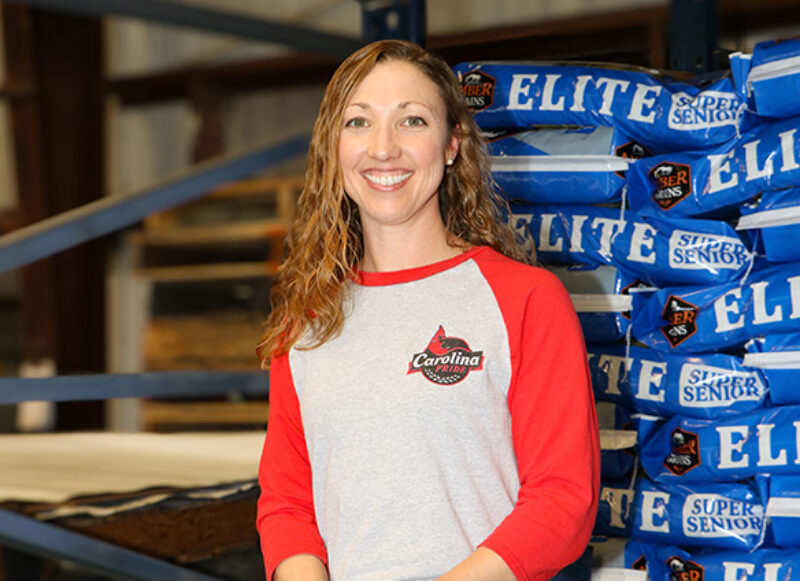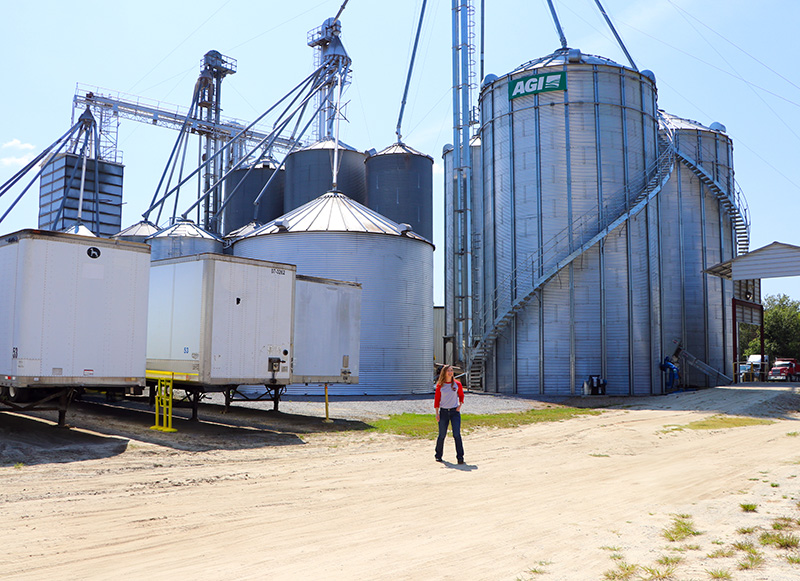Coker Feed Mill
Goldsboro, NC
Goldsboro, NC

Riley Coker founded Coker Feed Mill in 1949 after a crippling diagnosis left him unable to farm. From the beginning, the mill was a true family operation; Coker’s wife, brother-in-law, and even his children assisted with the day-to-day operations. By the early 1980s, his son Brantley assumed leadership, dedicating himself to the business for nearly forty years. In 2018, Brantley Coker was ready to begin transitioning to retirement. Without a clear succession plan, though, he found himself on uncertain ground. So his daughter Amber Butler and her husband Laurence left their jobs in education, moved their family from Arizona, and committing themselves to running the feed mill.
Coker had spent his life building the business, making it challenging to relinquish control. “When you’re talking about transitioning ownership and responsibility, you’re really talking about letting go of and taking up power,” Butler said. The transition occurred over several years while she and her husband learned as much as they could from her father, who now serves on the company’s board but no longer takes part in the daily operations.
Referred to the SBTDC by a local economic development partner, Butler had initially requested assistance developing a business plan and streamlining her goals, but their working relationship soon grew to encompass many different areas of the business. The SBTDC was instrumental in the transition process, Butler said, holding her accountable and connecting her with an attorney to handle the legalities of the business’s transition of ownership. “They’re a combination of being a helpful, listening ear and providing actual resources,” she said. Once Butler began to examine the company’s needs for their growth trajectory, she worked with her counselor, Rachel Bridgers, to identify ways to improve efficiency. “By simply asking the right questions, digging a little deeper, or providing an alternative perspective, [Rachel] helped me to make some mindset shifts that were critical,” Butler said.
“No matter what I was going through, [the SBTDC] had solid decision-making principles to guide me . . . and some plug-and-play resources or connections with experts.”
Amber Butler
To illustrate the financial health of the company, Bridgers ran a ProfitCents report, which “can identify patterns from the data that’s already in existence and help us make recommendations,” she said. Based on the report, she and Butler reviewed how best to improve asset turnover efficiency. Looking at the metrics, Butler planned to add new equipment to produce more product in less time, aiming for an increase in production of 2.5x. Bridgers also suggested adding a split shift. Though Butler worried that employees would feel burdened by additional hours, Bridgers offered another perspective: “Would [employees] want to work an additional shift to be able to earn additional money for their families?” she asked. Butler decided to try splitting shifts incrementally and is looking at lengthening each shift but decreasing number of days worked. “We feel this is a quality of life improvement,” she said.
In the six years since Amber and Laurence Butler began the transition to lead Coker Feed Mill, they’ve quadrupled production output. As market demands have shifted, they have responded in kind, adding product lines and working with new suppliers. They’ve been adding new infrastructure every year, beginning with larger capacity bins as well as revamping the receiving pit with a new elevator in 2022. They also purchased a stacking robot to improve both efficiency and working conditions.
But at the end of the day, what keeps the Butlers working hard is the people they serve. “We want every person who leaves here to feel better than when they came. And we want every employee to feel supported and challenged. And we want every reseller to have a thriving business,” Amber Butler said. She credits her success to her humanitarian heart and her willingness to learn. Her advice to other business owners? Check your ego at the door. “I think it’s critical to be radically open minded, [rather than] seek to confirm my own biases,” she said. “But sometimes I need to go back and say, girl, just do it. . . . You’ve got enough to support you; you’ve got enough backing you up.”

